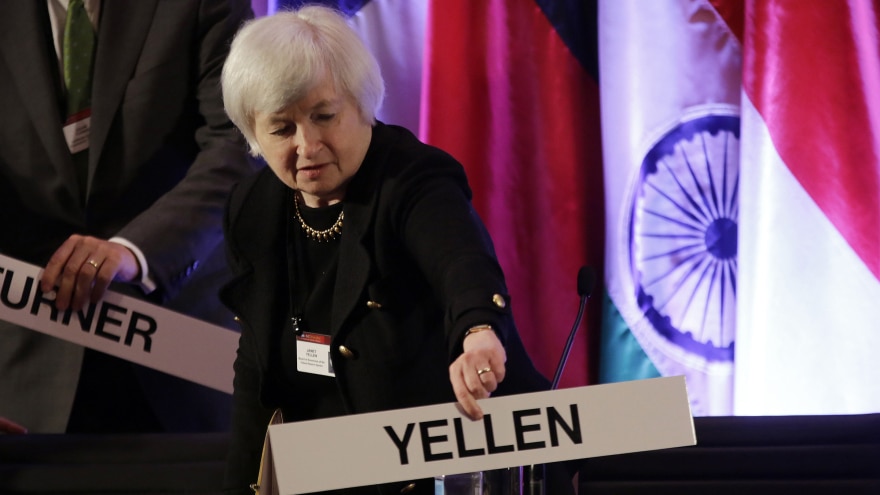Com’era ormai da giorni pressoché scontato, caduta la candidatura di Larry Summers, Janet Yellen è stata chiamata da Barack Obama alla guida della Federal Reserve, in sostituzione di Ben Bernanke, ritiratosi al termine di tre mandati. Nessuna donna, prima della Yellen, aveva guidato quella che molti del tutto legittimamente considerano la vera plancia di comando dell’economia mondiale. Ed assai probabile è che la nuova “chairwoman” della Fed continui a muoversi – contrariamente a quello che i più s’attendevano da Larry Summers – nella politica di sostegno all’economia (il cosiddetto “quantitave easing”, o QE, praticato dal suo predecessore.
Ecco quello che, in editoriale, Il New York Time ha scritto, a proposito della nomina della Yellen:
Chairwoman Janet Yellen
President Obama was wise to nominate Janet Yellen, vice chairwoman of the Federal Reserve, to be the Fed’s next leader. As a deeply respected economist, she will bring two vital attributes to that role as a steward of the economy.
First, she represents continuity with the Fed’s current low-interest-rate policies to foster employment while controlling inflation. Those policies, which she has helped to create and sustain, have undeniably boosted the flagging economy.
Just as undeniably, they have generated controversy and consternation. Ms. Yellen has expertly addressed those concerns, including the risks inherent in a prolonged low-interest-rate policy, though the most feared effect, inflation, is as yet nowhere in sight.
She also has been realistic about the limits of the Fed’s efforts. Her grasp of the issues in all their complexity has given her the credibility to lead the Fed in deciding how long to continue monetary stimulus policies and how eventually to ease up and end them.
Second, she also represents a break from Mr. Obama’s circle of policy makers whose reputations were marred by their roles before or during the financial crisis. Her nomination comes after Lawrence Summers, an architect of Clinton-era policies to deregulate derivatives and an Obama adviser who underestimated the need for stimulus, withdrew his name from consideration. By choosing someone outside his usual circle, Mr. Obama sends a strong signal of moving forward.
In accepting the nomination, Ms. Yellen said that expertise, objectivity, debate and consensus are crucial to effective Fed policy-making. She is widely admired for all of these traits. Labels like dove versus hawk on monetary policy really do not apply to her.
Rather, her responses to economic problems have invariably been data driven, grounded in facts and analysis and subject to change as the facts change. For example, as president of the Federal Reserve Bank of San Francisco from 2004 to 2010, she sounded the warning about housing bubbles, even as others praised the boom.
That display of sound judgment is not unusual in her record. In a tally by The Wall Street Journal of economic predictions on growth, inflation and unemployment made by 14 Fed members between 2009 and 2012, Ms. Yellen ranked at the top.
The Senate should move quickly to confirm Ms. Yellen. As leader of the world’s most powerful central bank, the Fed chief is also the most important international economic policy maker. Congress’s current fiscal recklessness is roiling international markets. Confirming Ms. Yellen promptly would help to quell that instability.
Her nomination is a bright spot in a week dominated by the threat of a default from failure to raise debt ceiling. The Fed would be in good hands under her leadership.
Meet The New York Times’s Editorial Board »


